
With winter comes a lot of things: fewer daylight hours, lots of chunky knits, constant speculation over whether it’s going to snow, and the harsh cold air that leads to dry, cracked skin unless certain measures are taken.
When the outside air is cold and dry, the water in our skin evaporates more quickly which leaves skin feeling dry and tight, so it’s even more important to be intentional about locking in that moisture as often as possible. And while the outside air may be the most notable cause of drier skin in winter, the increase in hot dry air we get from cranking up the heaters indoors also contributes to the lack of moisture in our skin (talk about a double whammy!)
With these points in mind, here are SEVEN things that you need to be doing to take care of your skin during this last stretch of winter (and all year round, let’s be real! Why shouldn’t our skin be at its best 365 days in the year?)
Moisturise straight out of the shower
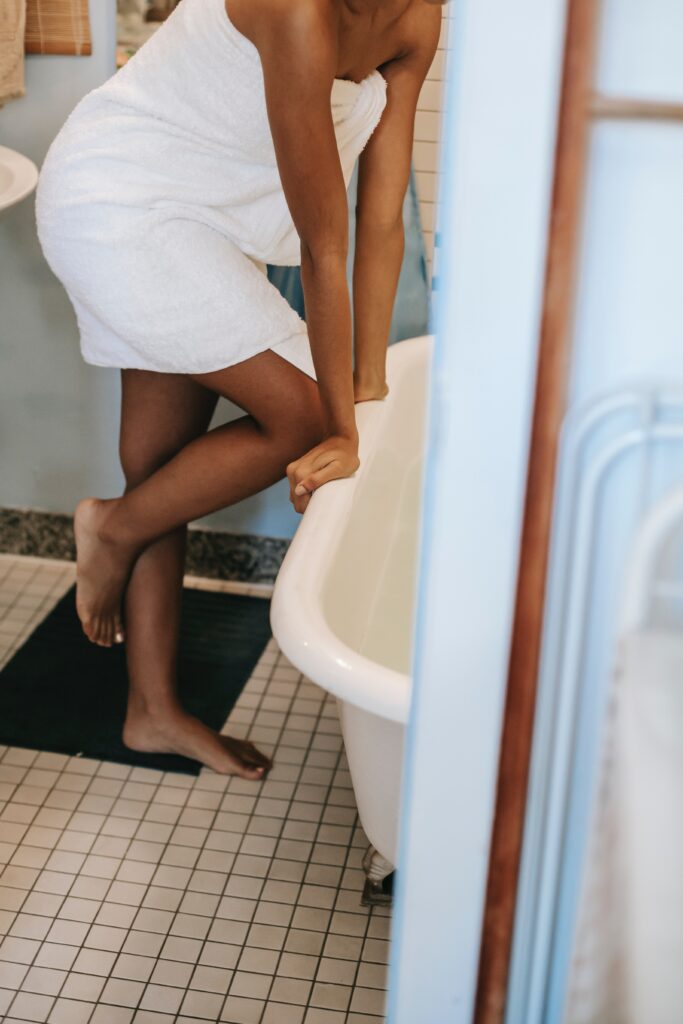
The whole point of moisturising is to lock in moisture a.k.a. water. When skin is still damp, applying lotion helps to seal that residual water in the spaces between skin cells. What with it being winter, you can opt for a deeply moisturising body cream (check for those targeted at dry skin types) to give your skin that extra much-needed hit of hydration.
NOTE: Be sure to pat skin dry when drying your body (and hands) rather than harshly rubbing with towels or tissue paper. And as tempting as it is to crank up the shower temperature, make sure the water you use in the shower isn’t too hot. High temperatures can damage your skin barrier, which we need for keeping moisture in, and bacteria and impurities out.
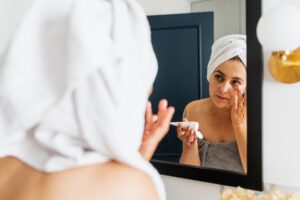
Look for moisturising shower gels and steer clear of soaps and highly perfumed bathing toiletries as these can be drying on the skin, which I’m sure you’ll agree is the last thing we need for our skin right about now.
Top tip: use your mirror to gauge your water temperature. Winter or not, if your mirror is completely steamed up after your shower, it’s too hot. Yes. I said what I said.
SPF is not just for the summer!

Sun protection is important and is still very much necessary during the winter months, even if the sun is not necessarily shining. UV rays are still able to get through thick winter clouds on overcast days and after a period of snow, a significant amount of these UV rays are reflected which can still cause sunburn and premature aging.
Snow and ice can actually reflect up to 90% of the sun’s rays so it’s particularly important to wear sun protection when outside in snowy or icy conditions. A number of studies have shown that regular application of sunscreen combats photoagaing, i.e. the appearance of wrinkles, age spots and sagging from loss of elasticity caused by exposure to the sun’s UV radiation.
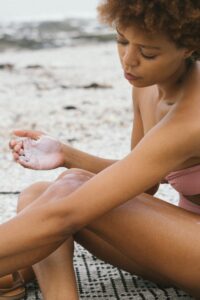
And contrary to popular belief, black people also need to use sun protection (that’s right, I’m talking to my fellow melanated brothers and sisters here). No our magnificent melanin doesn’t exempt us and won’t save us from the dangerous and invisible UV radiation from the sun. Be sure to do your research (check ratings and reviews) to find one that’s undetectable on the skin and won’t leave that all-too-familiar white cast.
You should opt for SPF30 as anything less than that doesn’t do squat.
Use a humidifier
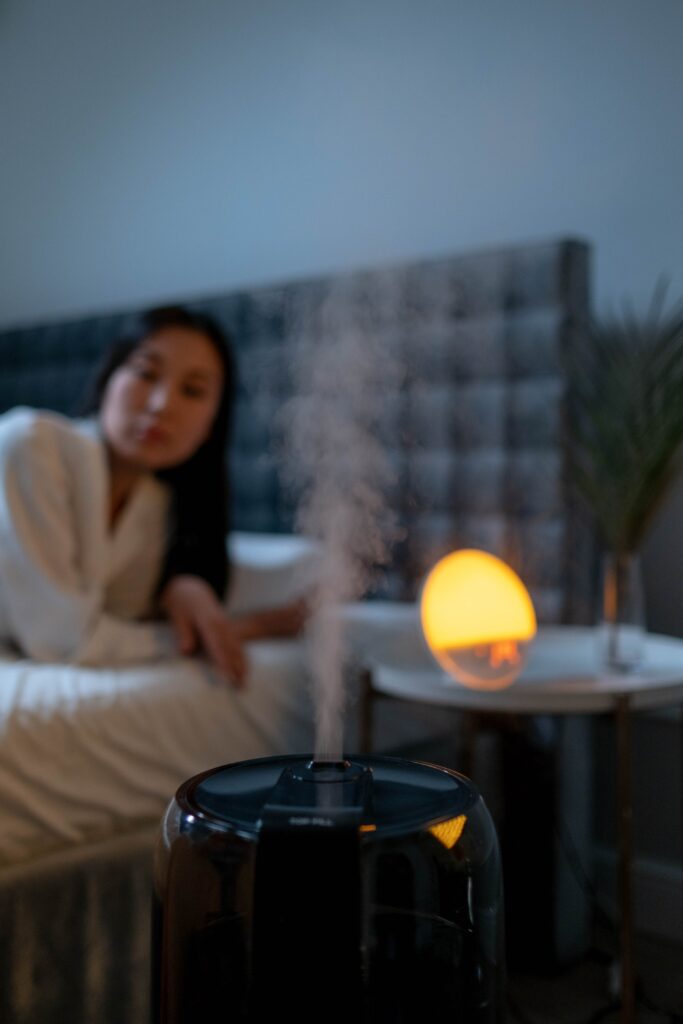
Humidifiers help retain a healthy level of humidity indoors, particularly when indoor heating systems are busy at work blasting out dry, hot air. This will allow you to replenish your skin with the added injection of moisture that humidifiers bring. And, once again, do your research, check ratings and reviews as you can find great ones online that also have a boiled water feature, meaning that as well as increasing moisture levels, they also add to the warmth of your home – a welcome addition during those cooler winter months.
And you skin won’t be the only thing to benefit from the presence of a humidifier! Another advantage of humidifiers is found in their ability to reduce infection transmission. Viruses and bacteria cannot travel as well in moist air so as well as improving your skin, you’ll be improving your immunity too, which I’m sure you’d agree there’s no better time for.
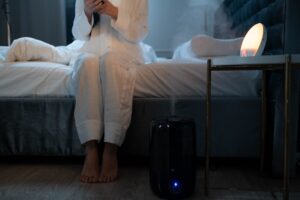
35% – 50% is the recommended humidity level during the winter months. You can also invest in some house plants (real ones!) and add some water basins near your heating systems for even more sources of moisture.
Drink plenty of water
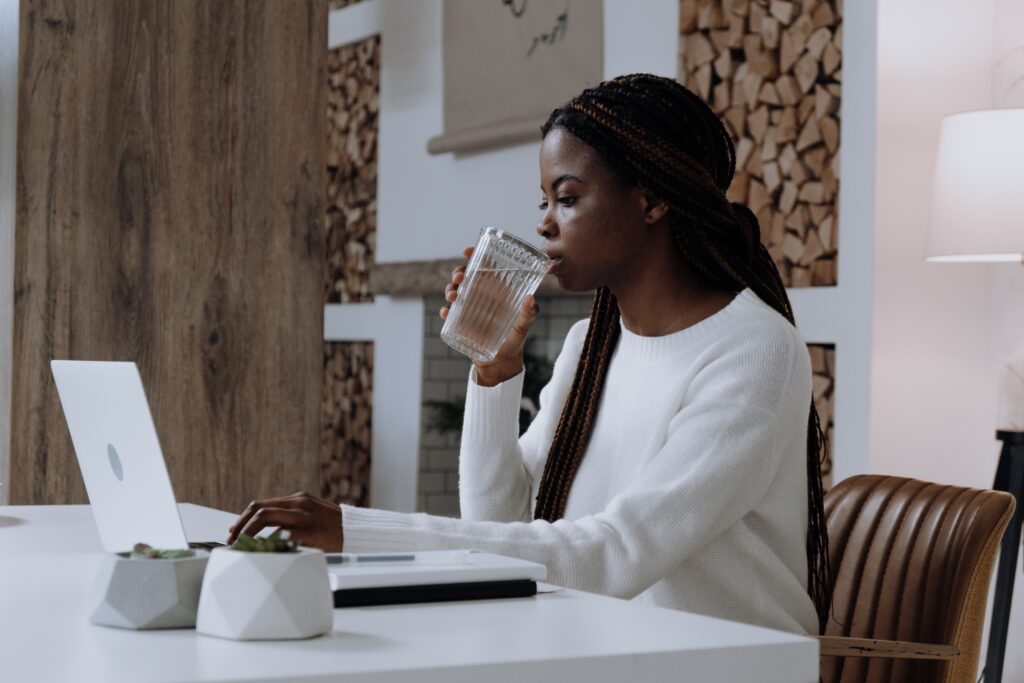
You didn’t think we’d spend all this time talking about moisture without mentioning the Queen of moisture herself and the very reason for the word, did you?
Drinking water is so important for our overall health, but particularly the skin as water flushes out toxins from the body leading to healthier skin. Studies have found that drinking water increases blood flow to the skin which helps to even out skin tone. Keeping hydrated also improves skin’s elasticity which helps in preventing fine lines and wrinkles.
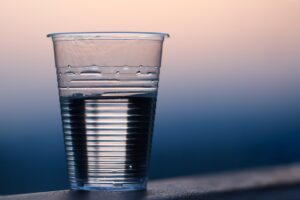
Getting enough water also aids digestion, which, again, is important for flushing out toxins from our bodies via waste products. Having enough water in our bodies also regulates sebum production. This regulation is needed in order to strike the perfect oil-water balance in our skin by preventing excess oil and sebum production which can lead to clogged pores and acne.
Curate a skincare routine that works for you
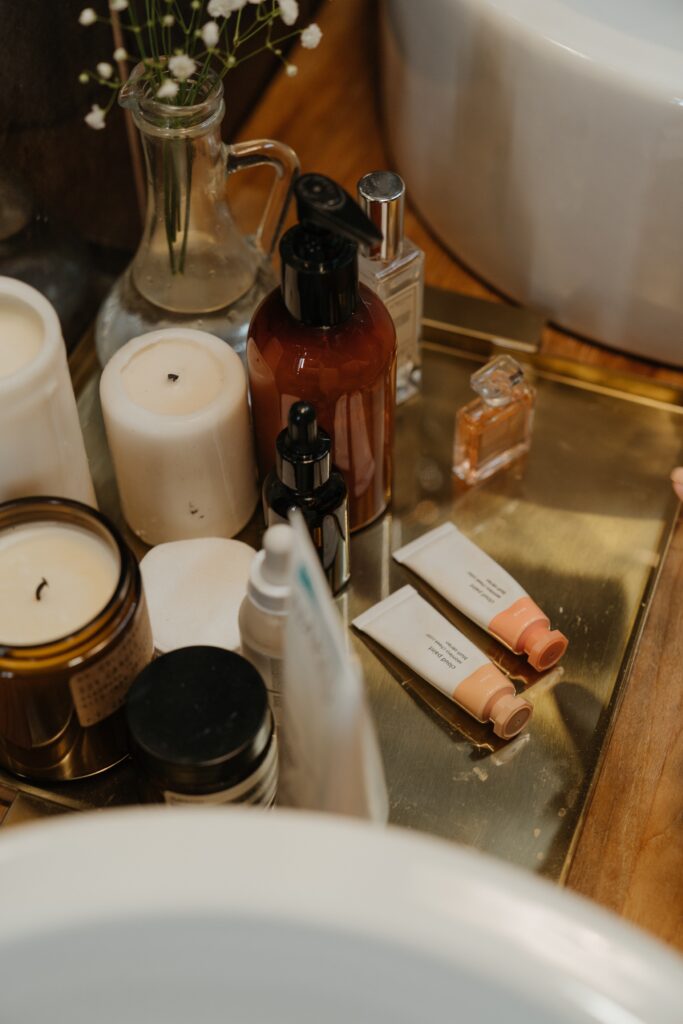
If you don’t already have a skincare routine, now’s the perfect time to build one!
Skincare doesn’t have to be complicated. The core fundamentals of any skincare routine can be summarised in the following three steps:
Cleanse
Tone
Moisturise
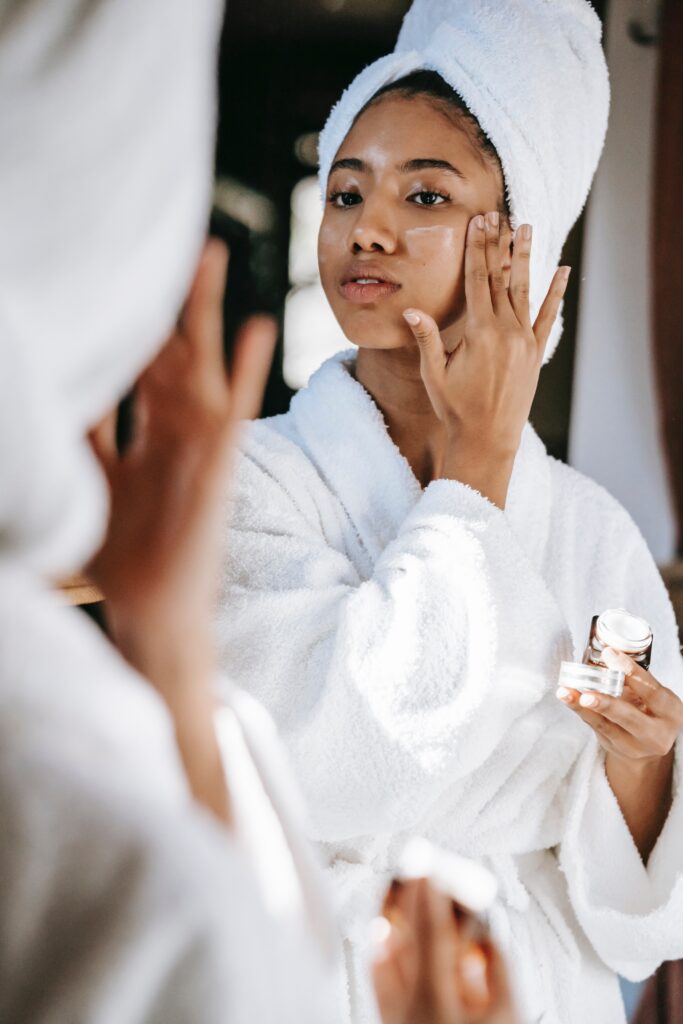
Cleansing does exactly what it says on the tin and cleanses i.e. cleans your skin of any dirt, debris, bacteria and impurities. Our skin is exposed to pollution, dust, dirt, sweat, excess oil and countless other things every day so it’s important to wash skin properly to remove these. You can also invest in a facial spin brush for an even deeper clean.
Toning removes every last trace of dirt, grime and impurities stuck in your pores thus preparing the skin to build the rest of your skincare routine on.
Moisturising – if you don’t know what moisturising is by now then you definitely haven’t been paying attention but for the avoidance of doubt, this is hydrating the skin by adding moisture (water) in the form of lotions and creams. Moisturising reduces our chances of skin problems like acne and blemishes, which will help skin stay young and supple, and will also delay wrinkles and other signs of ageing.
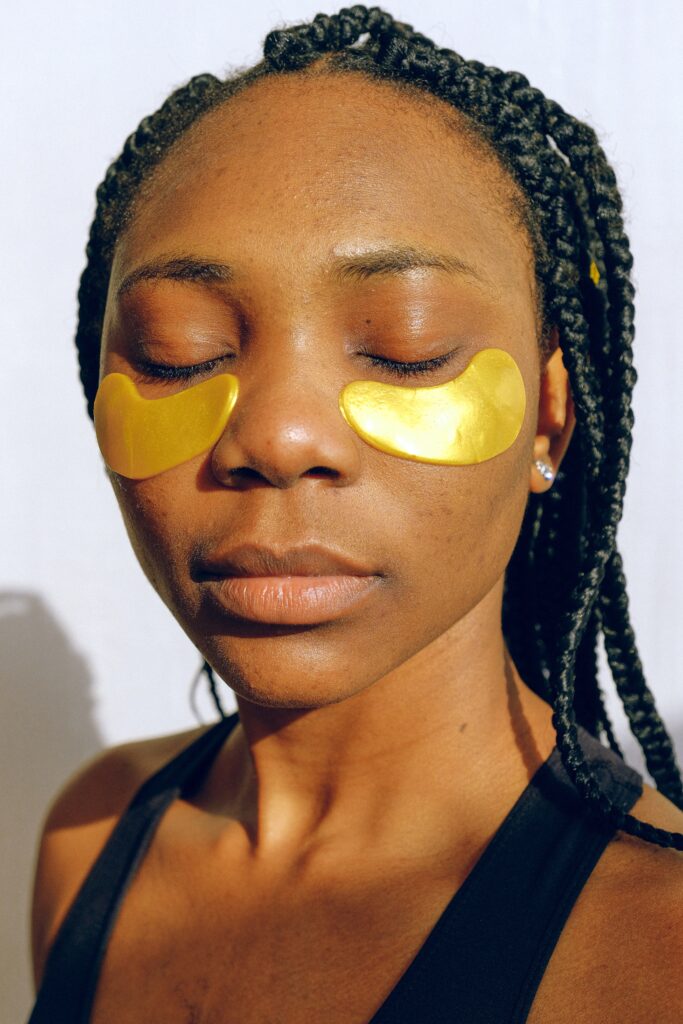
You can jazz up your skincare routine by including serums, eye creams and face oils for their added benefits but it’s these three steps outlined above that form the basics and the most important elements needed for taking care of skin.
Don’t forget to take your vitamins

Vitamins are absolutely essential for skin health.
There’s a vast number of beauty supplements on the market that have been carefully formulated to include a number of vitamins known to be good for the skin such as Vitamins A, C, D, E, biotin, and the supplement collagen (note: a lot of the beauty supplements you’ll find for skin are marketed as skin, hair and nail supplements as they also benefit hair growth and nail strength.

Vitamins C and E particularly are extremely important for protection against sun damage and both of these vitamins can be used topically on the skin or ingested orally. Vitamin E reduces UV damage, guards the skin barrier and improves skin’s hydration and vitamin C is an antioxidant that boosts collagen production, decreases pigment formation and protects against environmental stressors. They also work extremely well when combined so look out for skincare products containing both.
The good news is that a few of the vitamins that work well for boosting overall immunity also help with skin so if you’re anything like me and have been taking your vitamins with all due diligence since the start of the pandemic then you may have already been taking some of these skin-boosting vitamins already without realising you were doing your skin a favour too!
Get enough sleep!
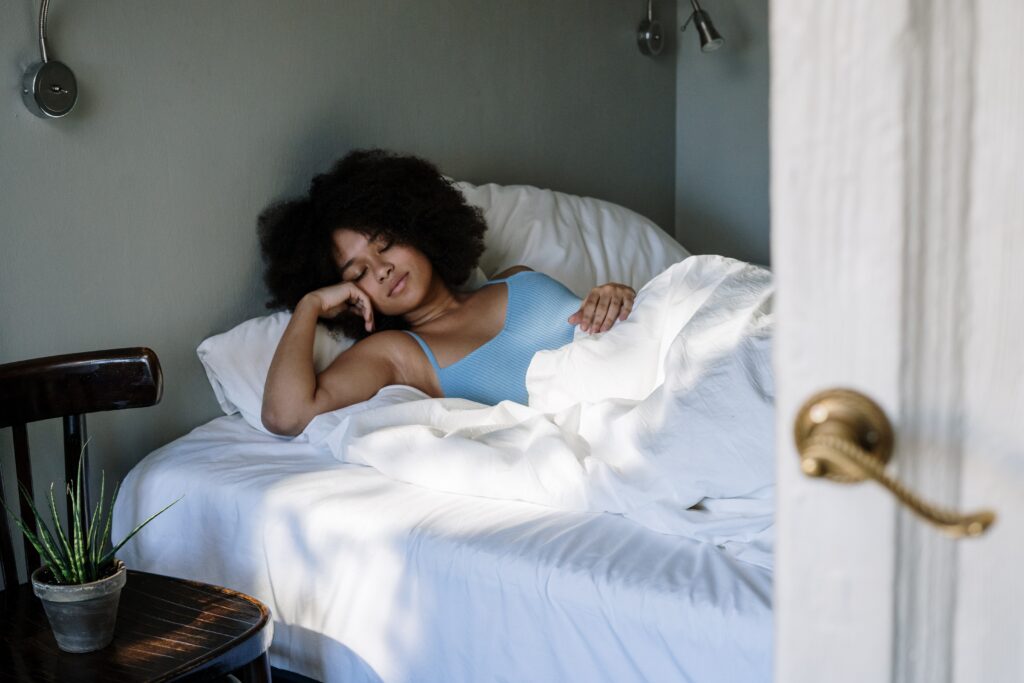
The phrase “beauty sleep” didn’t come from nowhere and as such, cutting back on your sleep means that your skin will suffer for it. According to Judith Hellman, a board-certified dermatologist, “lack of sleep causes the stress hormone cortisol to be released, which in turn encourages inflammation in the skin, causing flare ups in conditions like acne, psoriasis, and even eczema.” Getting enough sleep is key for all-round skin health.
During sleep, blood flow to skin increases and as we rest our skin also rests and repairs itself. Our bodies also use this time to deliver fluids to organs and tissues that require it while removing excess fluid from other areas. This is why you can develop “bags” under the eyes a.k.a pockets of fluid when you habitually fail to get enough sleep. Organs rebuild collagen and repair damage from UV exposure i.e. fine lines, wrinkles and age spots. Overnight our bodies remove toxins, repair cells (including skin cells) and restore damage caused by the environment, and replace aging cells with new ones.
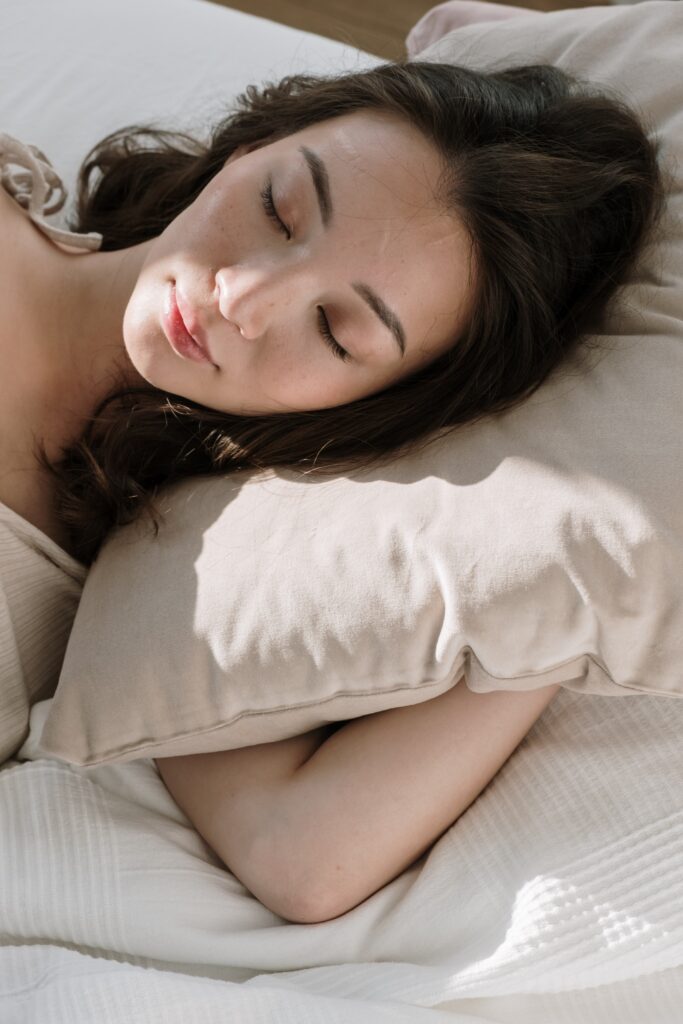
You should be clocking 7-9 hours of beauty sleep per night to see the most benefit in your skin.
I hope you find these tips and tricks useful and carry them with you for the remaining few days of winter, the rest of the year and beyond! I’d love to know if you try any of these and for you to share your results so definitely keep me posted!
